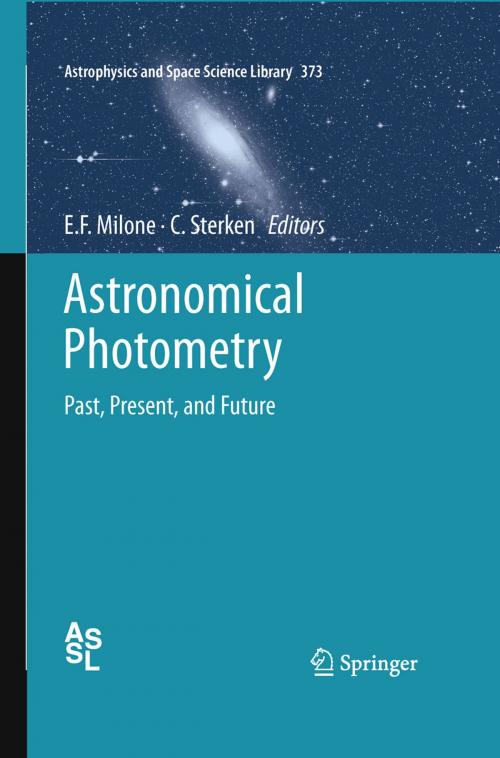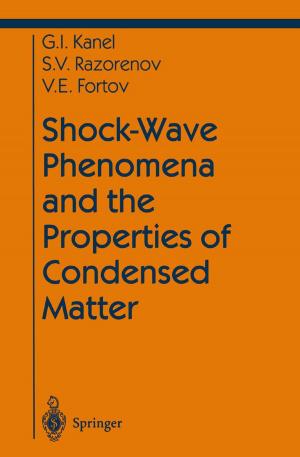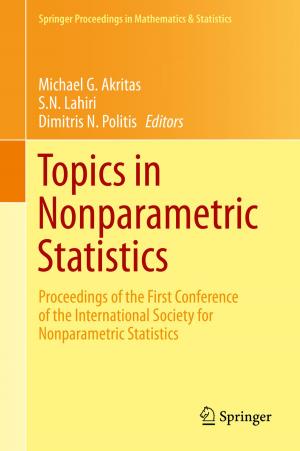Astronomical Photometry
Past, Present, and Future
Nonfiction, Science & Nature, Technology, Electronics, Science, Physics, Astrophysics & Space Science| Author: | ISBN: | 9781441980502 | |
| Publisher: | Springer New York | Publication: | April 6, 2011 |
| Imprint: | Springer | Language: | English |
| Author: | |
| ISBN: | 9781441980502 |
| Publisher: | Springer New York |
| Publication: | April 6, 2011 |
| Imprint: | Springer |
| Language: | English |
This book will bring together experts in the field of astronomical photometry to discuss how their subfields provide the precision and accuracy in astronomical energy flux measurements that are needed to permit tests of astrophysical theories. Differential photometers and photometry, improvements in infrared precision, the improvements in precision and accuracy of CCD photometry, the absolute calibration of flux, the development of the Johnson UBVRI photometric system and other passband systems to measure and precisely classify specific types of stars and astrophysical quantities, and the current capabilities of spectrophotometry, and polarimetry to provide precise and accurate data, will all be discussed in this volume. The discussion of `differential’ or `two-star’ photometers will include those developed for planetary as well as stellar photometry and will range from the Princeton polarizing photometer through the pioneering work of Walraven to the differential photometers designed to measure the ashen light of Venus and to counter the effects of aurorae at high latitude sites; the last to be discussed will be the Rapid Alternate Detection System (RADS) developed at the University of Calgary in the 1980s.
This book will bring together experts in the field of astronomical photometry to discuss how their subfields provide the precision and accuracy in astronomical energy flux measurements that are needed to permit tests of astrophysical theories. Differential photometers and photometry, improvements in infrared precision, the improvements in precision and accuracy of CCD photometry, the absolute calibration of flux, the development of the Johnson UBVRI photometric system and other passband systems to measure and precisely classify specific types of stars and astrophysical quantities, and the current capabilities of spectrophotometry, and polarimetry to provide precise and accurate data, will all be discussed in this volume. The discussion of `differential’ or `two-star’ photometers will include those developed for planetary as well as stellar photometry and will range from the Princeton polarizing photometer through the pioneering work of Walraven to the differential photometers designed to measure the ashen light of Venus and to counter the effects of aurorae at high latitude sites; the last to be discussed will be the Rapid Alternate Detection System (RADS) developed at the University of Calgary in the 1980s.















